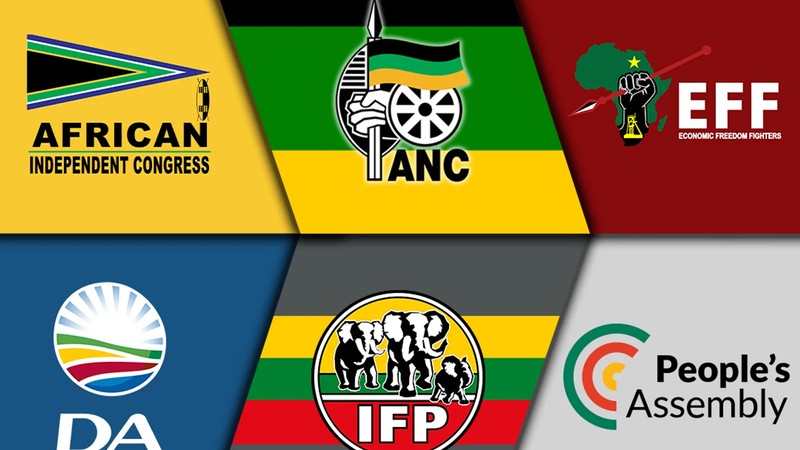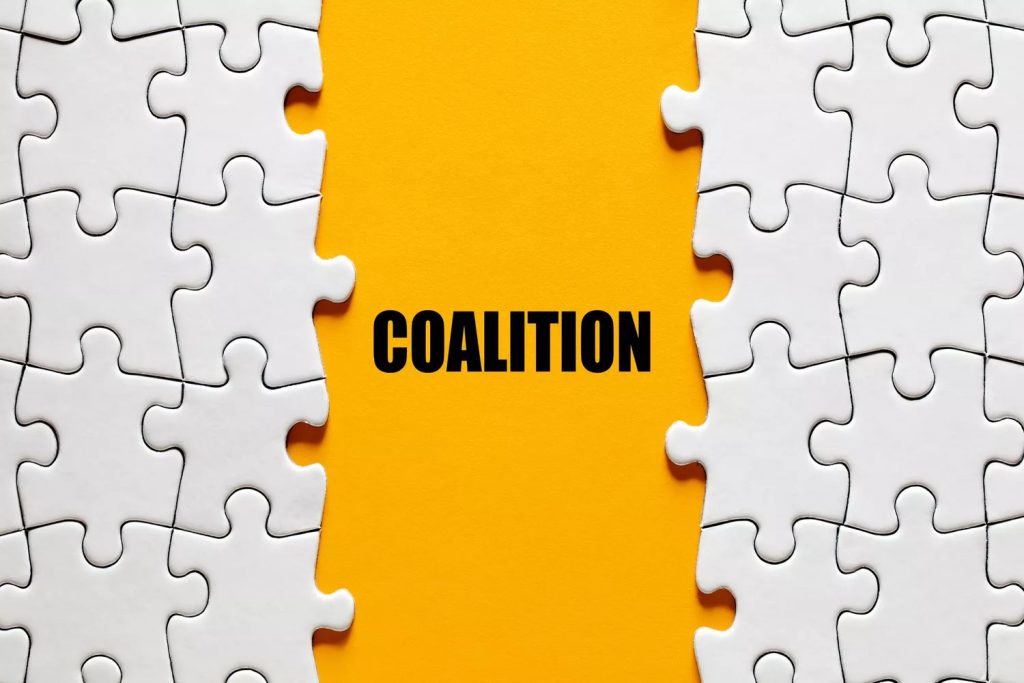
By Bahle Gama
The policies that will be implemented by the coalition government in South Africa will determine the direction of the business community regionally and internationally.
Eswatini Economist Thembinkosi Dube says whichever parties come together to form the coalition government in South Africa, the way forward hinges on the policies to be formed by these parties.
After the long-ruling ANC lost its parliamentary majority during the elections last month, this resulted in the neighbouring country’s political deadlock.
The ANC had been the governing party for 30 years since the end of the apartheid system of white minority rule in 1994 but only received 40 per cent of the vote in the 2024 election.
It remains the biggest party but needs to form an agreement with others to govern and re-elect President Cyril Ramaphosa for a second and final term.
South Africans vote for parties in national elections, and they get seats in Parliament according to their share of the vote. Lawmakers then elect the president of Africa’s most industrialized country.
The ANC proposed forming a government of national unity last week instead of a narrower coalition with one or two parties and invited all 17 other parties represented in Parliament to be part of it. Some have refused.
On Wednesday, June 12, 2024, Inkatha Freedom Party (IFP) leader Velenkosini Hlabisa said it would join the proposed government of national unity.
Hlabisa told reporters that the IFP was willing to join a unity government that includes the ANC and the Democratic Alliance, South Africa’s main opposition party that received the second largest share of the vote.
Two other major parties, the far-left Economic Freedom Fighters (EFF) and the new MK Party of former President Jacob Zuma refused to join the unity agreement. MK has filed court papers to halt the first meeting of Parliament and objected to the results of the election, claiming there were irregularities.
The centrist Democratic Alliance indicated it would also be willing to join a unity government.
According to the economist, the end decision will determine the stance of consumer confidence in SA and the countries it trades with.
“The most crucial thing to the business community is whether the policies are favourable or not.
Not in a bad way but the nationalization programme by the EFF gives a threat to the community, especially the foreign ownedf businesses,” Dube said.
The economist clarified that the programme by the EFF is a good structure, but it is not well advocated for, hence the threat it poses to the business community, within the region and internationally.
According to Dube, there might be a capital flight, in that even if investors remain in the neighbouring country, they do not expand. This would in turn cause for the domestic currency to be very low, resulting in it falling and making it expensive to import commodities and cheaper to export.
“But if the parties with favourable policies come together, for example the DA which is mostly the white community, their policies are more transparent and don’t talk about corruption as the ANC does.
If they come together it might work for the best in terms of consumer confidence, because that is what counts the most, because they can expand and trade with SA,” Dube shared his sentiments
He elaborated further that if the policies are favourable it will cause for a high demand for the domestic currency, and when that happens, exporters will trade with SA and the capital injection in terms of expansion will take place working in favour of the economy. The currency will appreciate.
Meanwhile, the challenge with MK according to Dube is that they are a new party, so their policies are unknown, especially when it comes to arguments.
“You find that the policies clash with those of ANC, which would mean something else to the international community,” he added.
ALSO READ:Cyril Ramaphosa re-elected President as ANC strikes coalition deal
In a research article published on January 23, 2023, by Matthew E Bergam on coalition agreements and governments’ policy-making productivity, one of the biggest challenges parties in multiparty governments face is making policies together and overcoming the risk of a policy stalemate.
He stated that coalition governments join together political parties with different, and sometimes conflicting, policy preferences that compete with each other in elections and over government offices.
This often results in politically unstable governments that find it hard to make policy reforms, leaving the choice between short-liveness and policy stalemate.
Yet, this bleak picture of coalition governance is far from universally applicable.
Coalition governments can also be stable, and productive in terms of making policy reforms.
“We know very well that greater preference compatibility between the coalition parties is likely to produce such effects.
However, are there institutional mechanisms coalition partners can resort to overcome the challenges associated with incompatible policy preferences and better facilitate the policy-making process?” questioned Bergman.
He elaborated that governance and policymaking in multiparty governments are characterised by several challenges, related to the fact that coalition partners have differing policy preferences and compete at elections separately.
This problem is exacerbated by a jurisdictional system, where cabinets delegate considerable policy-making authority to individual ministers and parties in charge of a ministry with a significant advantage in terms of policy-specific resources and gatekeeping powers.
“As a consequence, in practice, ministers are the only ones who can develop viable policy proposals.
Given differing policy preferences between partners, ministers have strong incentives to use this informational advantage to advance their party’s interests in the policy-making process.
According to the principal-agent framework, multiparty cabinets have to deal with problems of ‘ministerial drift’, since individual ministers representing different policy interests are likely to deviate from the agenda of the government as a whole.
Bergman stated that even so, ministerial drift can be reined in through monitoring and control mechanisms in cabinet and parliament, lowering the informational advantage of responsible ministers and making it harder for the minister party to misrepresent the policy situation to its advantage.
At the cabinet level, these include, ‘watchdog junior ministers’ cabinet committees and ‘inner cabinets.’

Bergman states that in parliament, committees play a central role in intra-cabinet monitoring and oversight, they have different options to gather policy information, which help them balance out informational asymmetries in the cabinet and propose feasible alternatives. In addition, depending on the legislative rules, committees can propose bill amendments or directly rewrite ministerial draft bills.
However, the usage of these control and monitoring mechanisms in cabinet and parliament, while effective comes with an important cost is time which could be used to pass further policies.
A thorough investigation of the current policy situation and the subsequent correction of ministerial drift via policy amendments is time-consuming. In addition, intra-cabinet ideological conflict increases the costs of potential ministerial drift.
It thus necessitates thorough oversight checks on policy proposals, which in turn can increase substantively the time spent on deliberation and revision of draft legislation.
Support of this theoretical expectation shows that the legislative process results in more amendments and lasts longer when there is greater ideological conflict between the coalition parties.
ALSO READ:Cyril Ramaphosa set to be re-elected despite ANC hammering
“How can coalition governments use their time more efficiently, yet still overcome problems of ministerial drift? Existing literature suggests that coalition agreements can be used to address intra-cabinet agency loss problems.”
Bergman adds that in contrast to oversight mechanisms used when in office, coalition agreements impose time costs at the beginning of the legislative term when parties bargain over the content of the contract.
Coalition likely to affect Eskom/EEC contract renewal

The contract between SA’s electricity distribution company Eskom and the Eswatini Electricity Company (EEC) comes to an end in 2025.
The fate of the agreement lies in the new SA government after the elections in May.
According to Economist Thembinkosi Dube, the direction Eskom takes will be based on the policies to be implemented by the coalition government.
“If the party that takes over feels it does not want to trade with any country, in terms of Eswatini then we are in trouble.
This affects us directly, for example, people like Malema have been questioning why SA sells electricity to Eswatini and other countries that do not talk much about load shedding when SA implements it as the producer.,” he said.
This according to Dube is one area in which policies will affect Eswatini in terms of production and the economy’s direction.
“Unfortunately for us, we are too slow to look for methods to be self-sustainable when it comes to energy. Although we are doing something we are very sluggish,” he said briefly.






